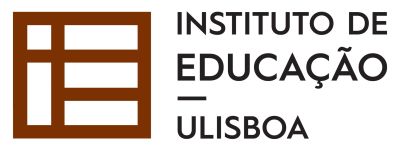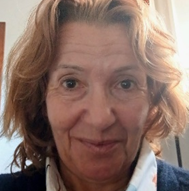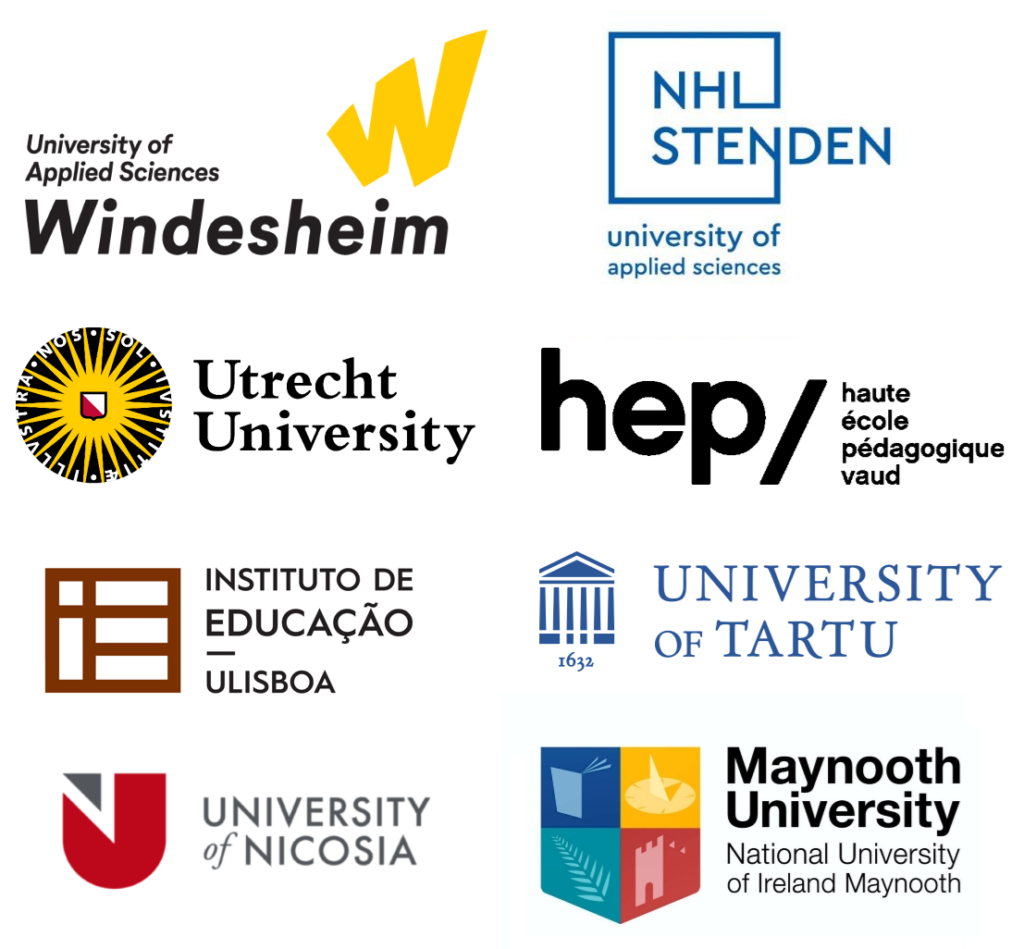LIFT Project – Lesson Study in Future Teacher Education
University of Lisbon

The University of Lisbon is the largest university in Portugal and one of Europe’s leading universities. Notwithstanding assessment methods or criteria, the University of Lisbon leads the main international rankings and is amongst the 200 best universities worldwide. Located in the heart of Lisbon, it provides its entire community with the best academic programs, vowing to deliver a uniquely enriching experience. Lisbon University is responsible for making the city of Lisbon one of the great European capitals of culture and science, as it welcomes around 9000 foreign students every year from over 100 countries. Bringing together various academic fields, the university has a privileged position in enabling the contemporary evolution of science, technology, arts and humanities.
The Institute of Education is committed to research, training and public intervention in Education and Training. Over the past years, it has been distinguished in various international rankings as a leading institution in the domain of Education in Portugal.
Research is a central element of its activity, combining fundamental and applied research in key domains of education and training. The Institute of Education collaborates with several national and international partners in the development of research projects and integrates academics from different parts of the world. The institute provides training activities in undergraduate and graduate programmes in different fields of Education and Training. In 2022-23, over 1,100 students are enrolled in undergraduate and graduate programmes, attracting more than 200 international students. The Institute of Education provides advisory and training services to educational organizations, as well as scientific and technical support for the design, monitoring and evaluation of public policies, especially in the areas of curriculum, didactics, assessment, teacher education and school administration, in Portugal and in Portuguese-speaking countries.
The University of Lisbon has suitable facilities and resources for training and research activities: specialized library and laboratories, study rooms, computer rooms, wireless network and access to virtual libraries, etc. It also includes the Future Teacher Education Lab, a learning space equipped with the most advanced digital technologies.
Research and Development Unit in Education and Training (UIDEF) is the research unity at the Institute of Education in Lisbon University. UIDEF research is developed in close connection with the institute´s advanced training activities and with national and international research-funded projects. UIDEF research is carried out within the framework of the two programmes: Education XXI and Change Forces in Education. The first addresses the diversification, modernization and improvement of education. It studies the development of educational structures, processes and practices, including the integration and use of digital technologies, oriented towards the promotion of socially relevant learning. Attention is given to two central problems: quality of learning, considering issues related to the acquisition and development of competencies and skills, and inclusion, addressing the ongoing engagement with diversity. The second deals with the issues of coordination, steering and monitoring of change in education systems. Attention is given to two central problems: the professional development in education professions, particularly focusing on the socialization and training processes of teachers and other educators, and the processes and effects of participation and accountability in the governance of education systems, particularly focusing on the construction, implementation and assessment of educational public policies.
Key persons in LIFT project

João Pedro da Ponte is Doctor of Education by the University of Georgia, in USA (1984). He is an emeritus professor of the Instituto de Educação da Universidade de Lisboa (Institute of Education in the University of Lisbon) and was a visiting professor at universities in Brazil, Spain and USA. He coordinated research projects in mathematics didactics, teacher education and digital technologies and supervised 55 PhD thesis and 95 masters’ dissertations. He has investigated teachers’ professional practice, knowledge and professional development, with special attention to lesson studies and teaching and learning of numbers, algebra and mathematical reasoning. He has published books, chapters and articles in journals such as Educational Studies in Mathematics, ZDM Mathematics Education, Journal of Mathematics Teacher Education, RELIME (Revista Latinoamericana de Investigación en Matemática Educativa) and BOLEMA (Boletim de Educação Matemática).

Mónica Baptista is an Associate Professor at the Institute of Education, University of Lisbon (IE-ULisboa). Her research focuses on Science Education, STEM (science, technology, engineering and mathematics) Education and Lesson Study, with involvement in national and international projects. She held executive positions in scientific organizations, including the Portuguese Association for Science Education (President) and the Portuguese Physics Society (Vice-President), and the International Organization for Science and Technology Education (Executive Board). Since 2018, she has been the Deputy Director of the University of Lisbon. In 2011, she received the University of Lisbon´s Best PhD thesis in Didactics award and in 2023, she received the University of Lisbon´s Best Researcher in Educational Sciences Prize.

Marisa Quaresma is an Assistant Professor at the Institute of Education, University of Lisbon where she works in Mathematics Education. She holds a PhD and a master’s in education, specialization in Mathematics Education. Her main research interests are teachers’ professional development, with a special focus on lesson studies with preserve and in-service teachers, the teaching of rational numbers and students’ development of mathematical reasoning. She has been part of several national and international project teams, she has supervised postgraduate and PhD students and published in national and international research journals. In addition, ahe is also leading a national project on Lesson Study to introduce Inclusive Education in initial teacher education.

Teresa Conceição holds a PhD in Science Education from the Institute of Education, University of Lisbon (IE-ULisboa), and a Master’s degree in Teaching Physics and Chemistry for Middle and Secondary Education, also from IE-ULisboa. She is an Assistant Professor, teaching curricular units in the Master’s in Teaching Physics and Chemistry programme at IE-ULisboa, and is a member of the IE-ULisboa Didactics Research Group. She has contributed to national and European projects in collaboration with IE-ULisboa. Currently, she is involved in the “Lesson Study in Initial Teacher Education” project, funded by the Portuguese national agency Fundação para a Ciência e a Tecnologia (FCT). She is also a participant in the “ICSE Science Factory,” funded by the European Union’s Horizon Europe Research and Innovation Programme, the LIFT project, funded by the Erasmus+ Programme under Action Type KA220-HED, and AcaSTEMy – Transnational STEM Teacher Education focusing on transversal competences and sustainability education, funded by Erasmus+ Teacher Academies. Since 2022, she has represented PhD graduates on the IOSTE Board (representing Mediterranean countries). Her main areas of interest include Inquiry-Based Science Education, Lesson Study, STEM Education, AI in Education, pre-service science teacher education, in-service science teacher education, and continued professional development.
Contact information
João Pedro da Ponte jpponte[at]ie.ulisboa.pt
Mónica Baptista mbaptista[at]ie.ulisboa.pt
Marisa Quaresma maquaresma[at]ie.ulisboa.pt
Teresa Conceição teresa.conceicao[at]ie.ulisboa.pt
University of Lisbon https://www.ulisboa.pt/


